-
 +27 +1
+27 +1The Coolest Library on Earth
At the University of Copenhagen, researchers store ice cores that hold the keys to Earth’s climate past and future.
-
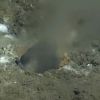 +4 +1
+4 +1Scientists Discover Leak in the Bottom of the Ocean
It may be more likely than ever that the next mega-earthquake is going to happen in the PNW — and a hole in the bottom of the sea may provide clues.
-
 +14 +1
+14 +1Why are most rocks on Earth much younger than the planet itself?
The rocks on Earth are not all the same age. In fact, most are significantly younger than the planet itself. The oldest sections of the oceanic crust are thought to be 200 million years old—a blink of an eye in the planet's billion-year lifespan. What is going on here? "Earth is an active planet," explains Boyet, a geochemist at the University of Clermont Auvergne in France. "This makes it different to other planets in our solar system, as well as to our moon."
-
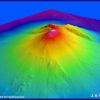 +15 +1
+15 +1Large underwater volcano likely erupting beneath Pacific Ocean's surface, scientists warn
A large submarine volcano is likely erupting below the surface of the Pacific Ocean, according to scientists with the U.S. Geological Survey, citing discoloration.
-
 +16 +1
+16 +1Vast underground water system helps drive Antarctica’s glaciers
Lake Whillans is a strange body of water, starting with the fact that there is liquid to fill it at all. Though buried under more than 2,000 feet of Antarctic ice, its temperatures climb to just shy of 0° Celsius, thanks to a combination of geothermal warmth, intense friction from ice scraping rock, and that thick glacial blanket protecting it from the polar air. Given the immense pressure down there, that’s just balmy enough to keep the lake’s water watery.
-
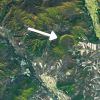 +29 +1
+29 +1Scientists uncover the largest crater on Earth under 100,000 years old
The impact crater is the second discovered in China.
-
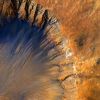 +26 +1
+26 +1Sensor breakthrough paves way for groundbreaking map of world under Earth surface
An object hidden below ground has been located using quantum technology—a long-awaited milestone with profound implications for industry, human knowledge and national security.
-
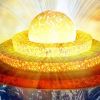 +17 +1
+17 +1Earth's core is neither solid iron, nor liquid. It's a whole lot weirder
We've known for a while that Earth's deepest depths, its "solid iron" inner core, isn't made of pure iron — and now scientists say it might not be solid either.
-
 +19 +1
+19 +1Earth’s oxygen will be gone in 1 billion years | EarthSky.org
A billion years from now, as the sun heats up, the warmer atmosphere will break down carbon dioxide, killing off plant life, which in turn will shut off Earth's source of oxygen.
-
 +17 +1
+17 +1Earth has acquired a brand new moon that's about the size of a car
Astronomers have spotted an asteroid that has been captured by Earth's gravity, making it a temporary mini-moon. It will probably fly away again in April
-
 +4 +1
+4 +1NASA will hunt for tiny fossils on Mars
The Mars 2020 rover will investigate an intriguing type of mineral deposit known for producing fossils on Earth.
-
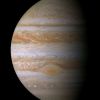 +18 +1
+18 +1Is Jupiter a Failed Star?
Although Jupiter is large as planets go, it would need to be about 75 times its current mass to ignite nuclear fusion in its core and become a star.
-
 +18 +1
+18 +1Traces of new dark matter candidate could be found in crystals deep inside the Earth
Although it outnumbers regular matter by a ratio of five to one, dark matter is frustratingly elusive. Many experiments have been and are being run to try to hunt down different types of candidate particles, but so far no direct trace has been found of any of them. Now, researchers from Max Planck have proposed a new hypothetical particle that might be behind dark matter – the superheavy gravitino – and outlined just how we might find them.
-
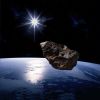 +35 +1
+35 +1How Astronomers Missed the Massive Asteroid That Just Whizzed Past Earth
The space rock that just whizzed by Earth was up to 430 feet across.
-
 +18 +1
+18 +1Strong planetary magnetic fields like Earth's may protect oceans from stellar storms
A study by scientists at ANU on the magnetic fields of planets has found that most planets discovered in other solar systems are unlikely to be as hospitable to life as Earth. Plants and animals would not survive without water on Earth. The sheer strength of Earth's magnetic field helps to maintain liquid water on our blue planet's surface, thereby making it possible for life to thrive.
-
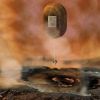 +4 +1
+4 +1Earthquake-detecting balloons could help reveal the inner structure o
Venus is a hellish environment. With a bone-dry, reddish-brown surface marred by thousands of volcanoes and covered in ancient lava flows, it’s not a place you want to spend your time. And sure, the planet has occasional rain showers, but they sprinkle sulfuric acid, not water, which likely taints the air with the smell of rotten eggs. At the surface, temperatures rise to over 850 degrees Fahrenheit (450 Celsius; hot enough to melt lead), and the pressure hovers around 90 times that of Earth.
-
 +1 +1
+1 +1Nobody knows why the Earth just rang like a bell
Seismic sensors first picked up the event originating near an island between Madagascar and Africa. Then, alarm bells started ringing as far away as Chile, New Zealand and Canada. Hawaii, almost exactly on the other side of the planet, also picked up the “event.” Nobody knows what it was. Meteorite? Submarine volcano? Nuclear test?
-
 +12 +1
+12 +1The Woman Who Reinvented the Moon
A MacArthur “genius grant” winner writes a new lunar origin story. By Brian Gallagher.
-
 +19 +1
+19 +1Iceberg armadas boosted monsoon rains in a different hemisphere
New record of ice age climate from Brazilian caves tells of rainy times. By Scott K. Johnson.
-
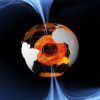 +18 +1
+18 +1Is Earth's Magnetic Field Heading for a 'Big Flip'? Probably Not (Right Now)
What we might be seeing is an excursion rather than a reversal event. By Erik Klemetti.
Submit a link
Start a discussion




















